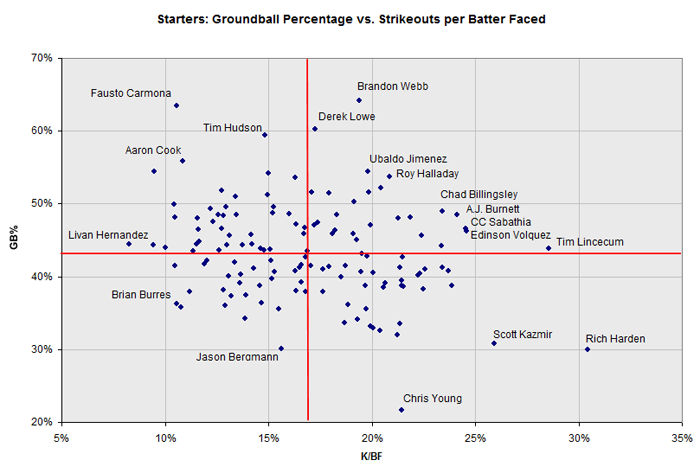I feel that batters who rarely strike out and have a high groundball % rate are valuable, because HS defenses have low fielding percentages.
HS defenses have a harder time turning ground balls into outs, relative to professional baseball.
Also, HS infields have a harder time turning double plays.
This leads me to believe that laying down bunts - sac, drag, push - is also key because it forces the HS defense to try convert the bunted ball into an out, and they will throw the ball away or misplay a high % of the time, relative to pro ball.
What else? How about pitchers who have high K rates? That way he gets outs without depending on the defense, which again has a lower fielding % than pro ball. And a catcher who doesn't turn those K's into "reached 1st base on a dropped 3rd strike."
Pitchers with low walk rates are obviously always good, especially so in HS ball because free bases turn to runs more with the higher # of passed balls, errors, etc.
What do you guys think?


